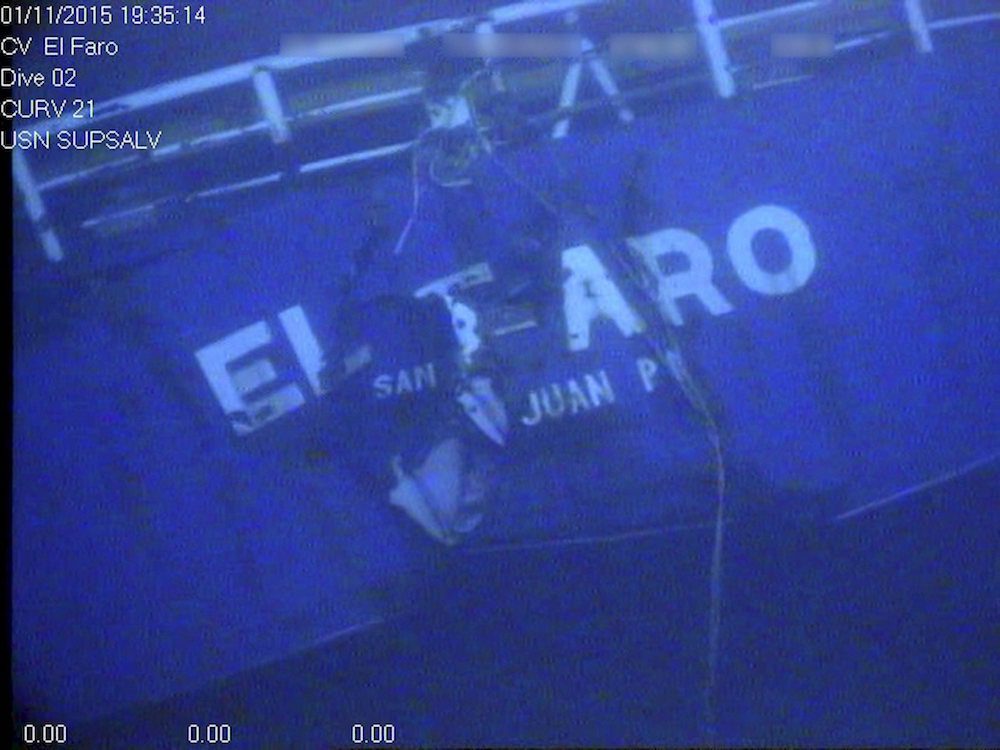The stern of the El Faro is shown on the ocean floor taken from an underwater video camera on November 1, 2015. Courtesy National Transportation Safety Board/Handout
The Committee on Transportation and Infrastructure has unanimously passed a bi-partisan bill seeking to enhance maritime safety in response to the tragic loss of the American cargo ship SS El Faro and its 33 crewmembers during in 2015.
H.R. 6175, also known as the Maritime Safety Act of 2018, implements the Commandant of the Coast Guard’s final action memo, containing the Coast Guard’s findings from its investigation into the casualty, as well as agency actions based on recommendations from the Marine Board of Investigation’s Report of Investigation.
The bill includes provisions that require the Coast Guard to ensure proper vessel inspections are undertaken, that vessels and crew have necessary safety equipment and timely weather forecast charts, and that voyage data recorders float free after an accident.
The legislation was introduced in the House on June 21 by Subcommittee on Coast Guard and Maritime Transportation Chairman Duncan Hunter (R-CA).
“The loss of the U.S.-flagged cargo vessel EL FARO, along with its 33-member crew, ranks as one of the worst maritime disasters in U.S. history, and resulted in the highest death toll from a U.S. commercial vessel sinking in almost 40 years,” Hunter said.
“The Nation relies on our merchant mariners and the U.S.-flagged ships they sail, and we owe it to them to learn from the lessons of past tragedies. The Maritime Safety Act of 2018 incorporates a number of safety recommendations from the EL FARO tragedy, and I’m confident that it will make great strides in improving the safety of our mariners.”
The Final Action Memo, which was approved by former Commandant Adm. Paul Zukunft last December, concluded that the primary cause of the casualty was the decision to navigate El Faro too close to the path of Hurricane Joaquin.
The Memo also listed several contributing factors including (1) an ineffective safety management system within the operating company, TOTE Services, Incorporated; (2) American Bureau of Shipping’s failures to uncover or otherwise resolve longstanding deficiencies that adversely affected the safety and seaworthiness of vessels on multiple occasions; and (3) failure of the Coast Guard to adequately oversee the third party in this case, and the investigation reveals that the Coast Guard has not sustained the proficiency and policy framework to do so in general.
H.R. 6175 will next go up for vote in the House of Representatives.
View the full text: Maritime Safety Acts of 2018

 Join The Club
Join The Club











